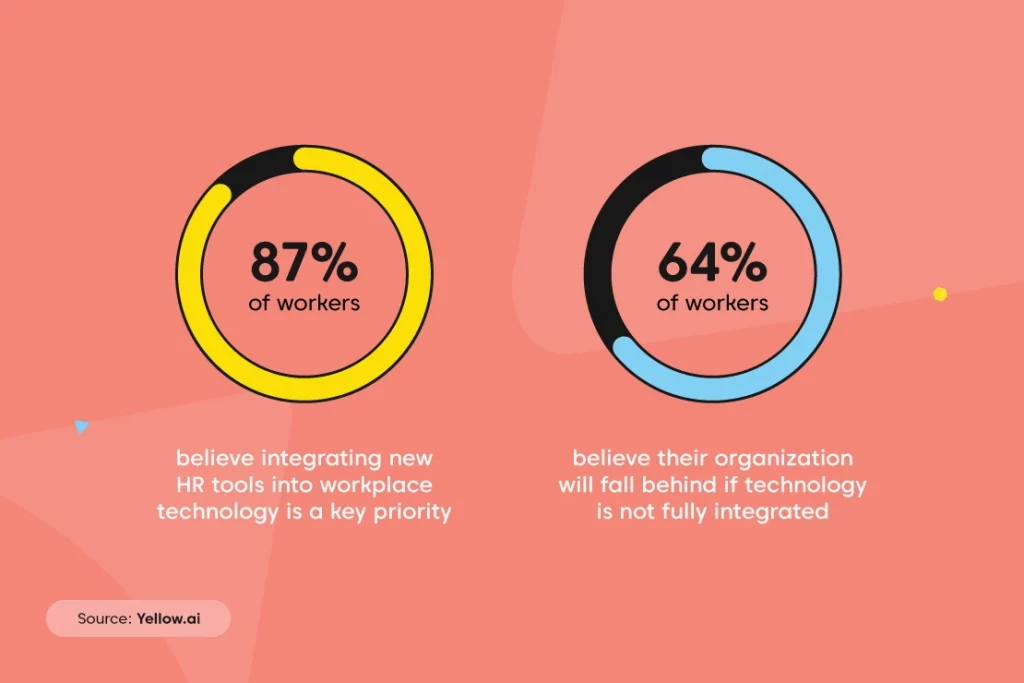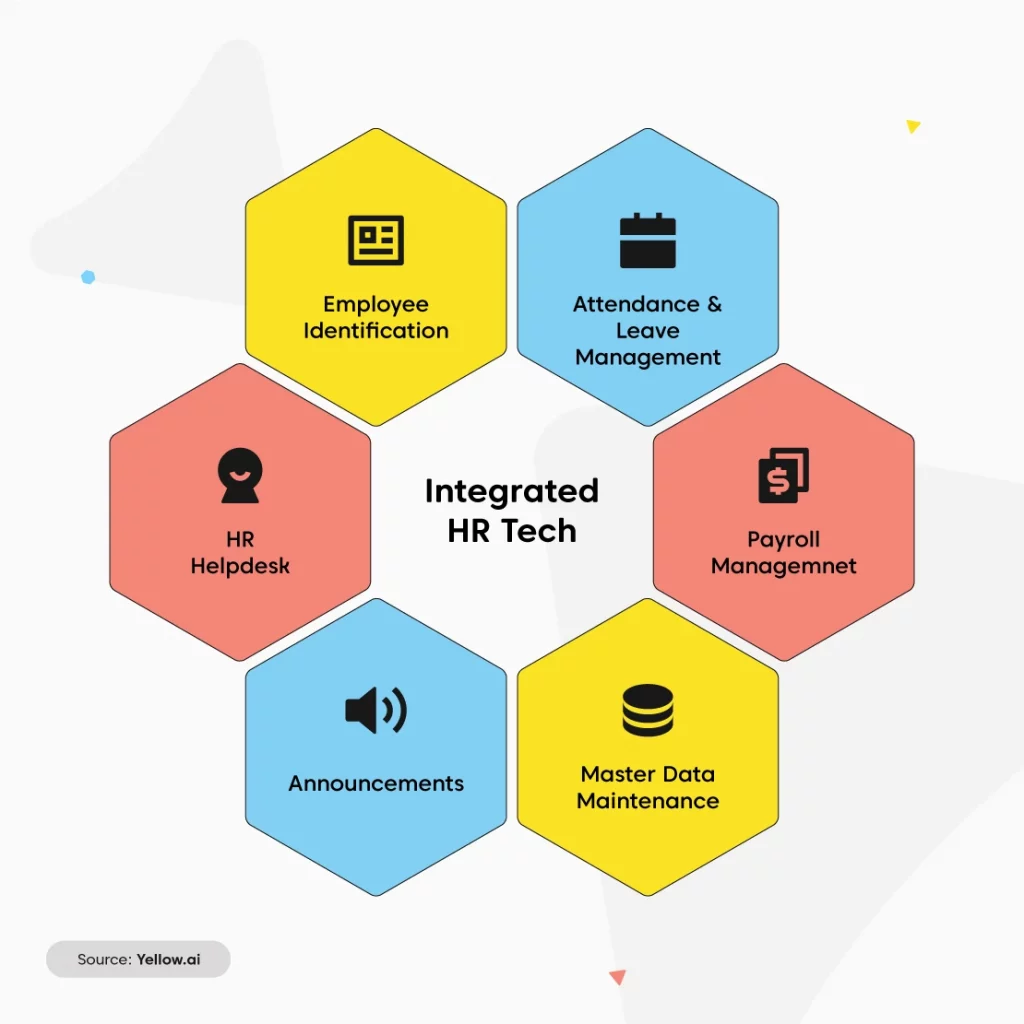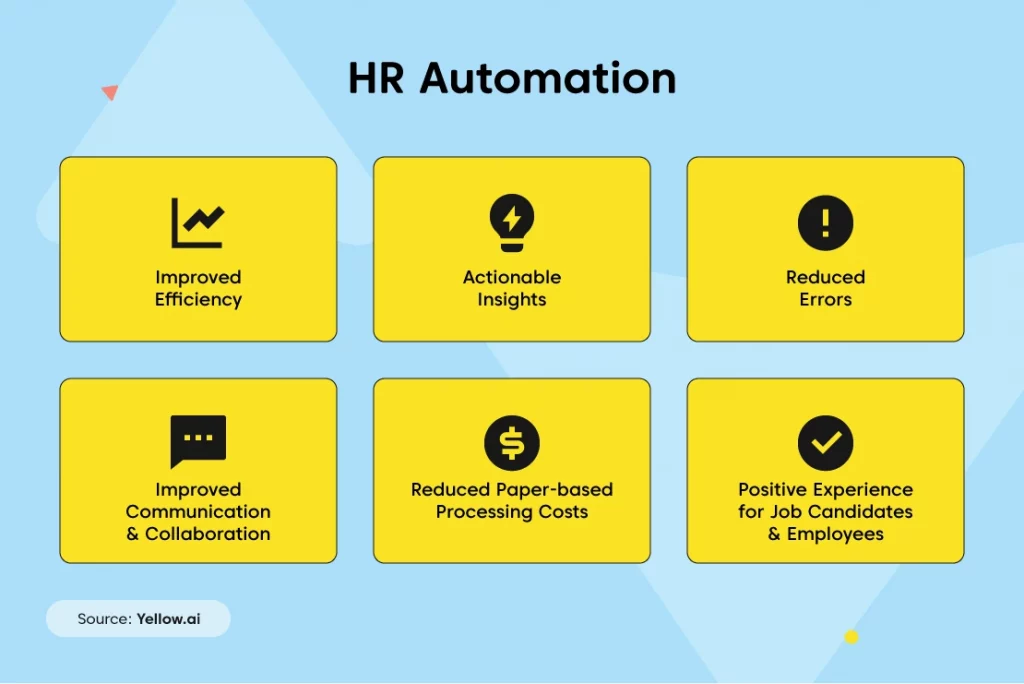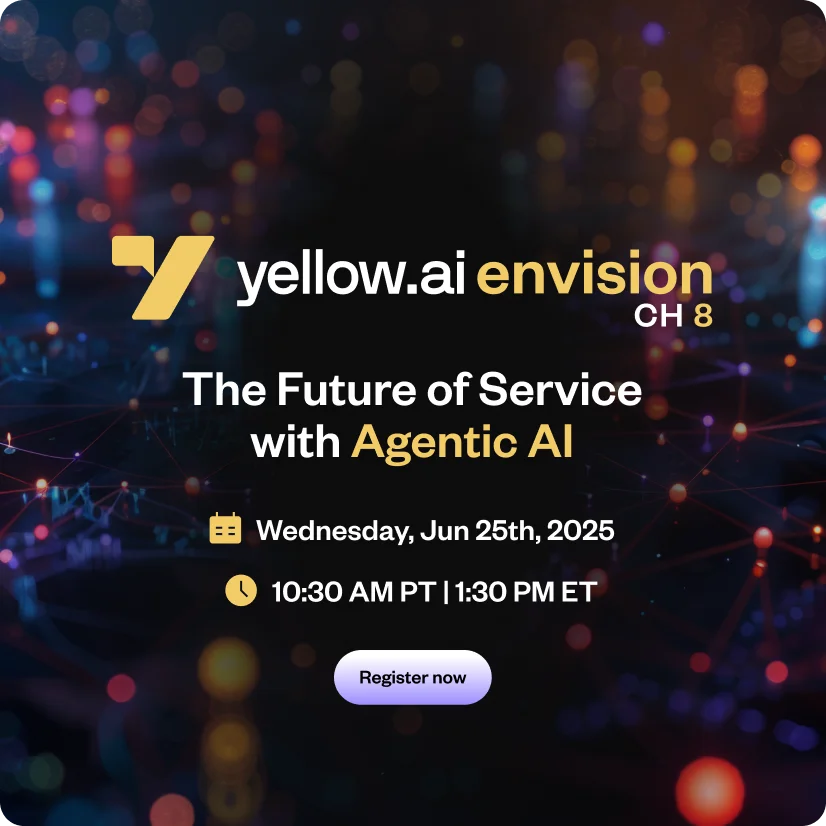HR processes that were once time-consuming and labor-intensive are now easier than ever, thanks to technological automation. However, with every new technology comes its own set of challenges.
Let’s look at the 5 common HR technology challenges and how you can overcome them.
What is HR technology and how is it evolving?
HR technology (human resources technology) is an umbrella term for software and hardware used to automate the human resources function in enterprises. It comprises employee payroll and compensation, talent recruiting and management, workforce analytics, performance management as well as benefits administration.
Companies throughout the world are increasingly embracing basic HR technology systems from enterprise software giants like SAP and Workday, as well as specialized HR tech providers, as a result of the rapid development of HR technology.
Many of these companies are moving from on-premises systems to cloud platforms, such as SaaS, to enter a second generation of HR technology.

6 Common HR technology challenges
1. Insufficient data and poor reporting
Challenge: Siloed tech systems
Do you have many systems that each handle a different component of your HR functions? Keeping track of several platforms is undoubtedly inefficient for your HR team. These fragmentary systems frequently require manual data entry, which takes a significant amount of time and can result in errors as well as inconsistent or incomplete data.
Among HR decision makers who use multiple tools for people-related tasks and insights, a quarter recognise that this causes frustration amongst employees, and a further 24% observe that multiple tools slow down processes and cause unnecessary delays.
Moreover, chances are, some of these systems do not communicate with one another and do not easily send data back and forth. Data may even be calculated differently between systems, resulting in poor synchronization.
Solution: Integrated HR technology
To avoid the pitfalls of having multiple HR applications, you need a fully integrated HR system. When you deploy an integrated HR solution, your HR team will only have to log in a single platform to manage benefits, payroll, taxes as well as hiring, onboarding and so much more.
A cloud-based, all-inclusive HR system with automated processes requires fewer employees to accomplish the same responsibilities, making it possible for your organization to spend less on HR per employee.

2. Over dependence on IT support
Challenge: Lack of technical expertise
At first glance, piecemeal HR systems may appear to be cost effective. Especially if you are a small firm or a new start-up.
However, as previously said, off-the-shelf software products that manage only one area of human resources rarely interface with your other systems. It takes a high level of technical skill to get diverse systems to interact and work together in the way that your organization requires. This normally necessitates the major involvement of an IT specialist – which is not inexpensive.
For example, a timekeeping system that appeared to be inexpensive and simple to use turns costly if you take in the costs of hiring an IT expert to make the system connect with your benefits-administration software. Individual HR systems’ true, long-term costs can potentially outweigh the initial cost of a more comprehensive HR management system over time.
Solution: Democratizing HR tech
HR solutions should be easy to implement, utilize and scale. They should not demand a user to have in-depth technical expertise to be able to operate a system. Low-code, no-code HR solutions with live AI support enable anyone with or without technological experience to simply carry-out day-to-day operations.
3. Lack of scalability
Challenge: Piecemeal HR systems are unscalable
What worked when your company was young or small – for instance, paper forms and more manual labor – may become increasingly complex and time consuming to manage as your company grows.
As your company grows in size and complexity, you’ll want to devote as much time as possible to running it, better serving customers and increasing profits. You probably don’t want to spend the majority of your time manually tracking and approving PTO and other leaves, scheduling, managing payroll and updating employee data. These things will begin to feel like unneeded distractions that hold you back and slow your productivity.
Solution: Investing in a scalable HRMS
If you’re just starting out, implementing an HR management system that scales with your organization might not only save you time and headaches in future, but it may also allow you to shift from a tactical to a more strategic attitude.
When your company transforms from reactive to proactive, you will empower your employees to take on new initiatives that promote your company’s vision and goal, rather than spending all day putting out fires.
4. Compliance problems
Challenge: Outdated HR systems without real-time compliance regulation
Businesses face a dense forest of employment-related federal, state and municipal laws and regulations. Staying informed and updated on legislative changes, especially across many locations, is a full-time job in itself, making it an even more challenging task for a business leader juggling many other vital obligations.
Outdated, nonintegrated HR systems typically do not provide timely on-demand resources or real-time advice for HR professionals on changes in employment regulations in their area.
Solution: Using a platform with automated compliance management
A next-gen HR automation platform can help you stay on top of changing regulations by automatically fixing compliance issues – say, a change in payroll percentages for specific deductions – before you’re even aware of them.
5. Sub-par employee experience
Challenge: Outdated HR systems make for poor employee experience
When it comes to day-to-day tactical chores like recording time, requesting PTO and checking leave balance, many employees want to be able to manage these processes autonomously and access their information at any time. The more they do, the less your managers have to deal with HR issues.
However, with outdated HR systems, your employees have to stay dependent on the HR team for every little problem. As we discovered, HR managers have a lot on their plate on a daily basis. Getting back to every little employee query can take time and any delays caused, impact employee experience negatively.

Solution: Adding a layer of automation to your existing HRMS
Now, if you’re already using an HR management system, making it more efficient doesn’t require spending millions of dollars, rather adding a layer of automation to your existing HR tech stack can do the magic.
It will help you release your HR personnel from administrative duties so that they can concentrate on revenue-generating initiatives as well as give employees access to information whenever they need it. A win-win!
To sum up
Over the last few decades, technology has already made significant strides in changing the face of the modern HR department. However, as your HR team uses a different solution for managing different functions, it can cause fragmentation and lack of productivity.
When HR systems are siloed, acquiring and interpreting data becomes a cumbersome process. It can lead to data gaps and poor reporting, which means you’re not getting the whole picture of what’s going on in your organization. As a result, you are unable to make the most informed judgments in a quick and agile manner.
What helps is having a more complete, fully-integrated HR management system that allows you to manage payroll, employee lifecycle, recruitment and other HR functions from a single place. Moreover, it also enables you to replace tedious manual processes with more efficient automated workflows that can allow your HR team to spend their time where it matters the most.
To learn more about how you can spruce up your existing HRMS with a layer of intelligent automation, get in touch with our experts.






















